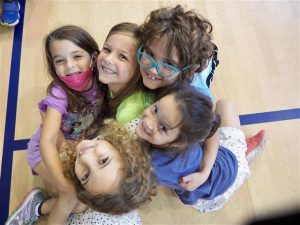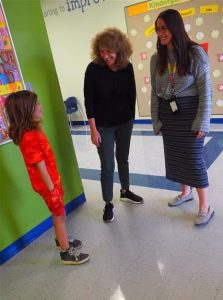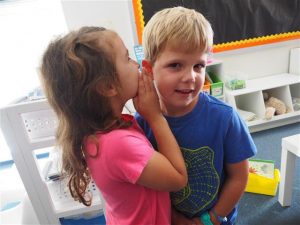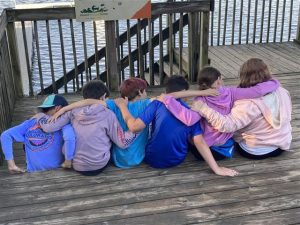Aren’t we fortunate that Judaism gives us an annual opportunity to begin with a clean slate? But acquiring that clean slate takes the hard work of tshuvah, apologizing for both intentional and unintentional wrongdoings.
For Eric and me, it was important to raise our children to become kind, caring, and responsible humans. We wanted to teach our children to have remorse and to express apologies. At Mirowitz, those lessons start well before kindergarten and continue through adolescence. Here’s how we do it:
 We model apologies. Your children are watching. When we make a mistake (and we all do), we apologize. A child who never hears an apology will not understand the process of tshuvah and will never learn to apologize when they make a mistake.
We model apologies. Your children are watching. When we make a mistake (and we all do), we apologize. A child who never hears an apology will not understand the process of tshuvah and will never learn to apologize when they make a mistake.
We start early. Peek into our kindergarten classrooms, and you may see our youngest students offering a hug to make a friend feel better.
They must have witnessed that behavior by the grown-ups around them. When a person is calm and ready to receive a hug, they also are able to accept a verbal apology.
We believe manners matter. We teach your children to say “excuse me” when they interrupt a conversation (and to wait to be recognized). We teach them to say “excuse me” when their bodies make sounds. When the response to natural function is laughter, children may make those sounds even more often.
We model forgiveness. At home and at school, children understand that an apology without forgiveness is incomplete. Real healing in a relationship happens only when the person who has been offended releases the person who hurt them. At Mirowitz, we guide your children to “make peace” with others, as accepting an apology is just as important as giving one. 
 We teach sincerity. The Torah teaches that apologies come from the lips and the heart. A sincere apology is better received and feels better, too. As the guiding adults, it is our responsibility to ensure that apologies happen in a way that both parties can move forward with good feelings.
We teach sincerity. The Torah teaches that apologies come from the lips and the heart. A sincere apology is better received and feels better, too. As the guiding adults, it is our responsibility to ensure that apologies happen in a way that both parties can move forward with good feelings.
It is our intention that your child grows up knowing that the work of tshuvah (righting mistakes) is part of being a contributing human being to each relationship, to the community, and to the world.
If I have wronged you, please accept my heartfelt apology.
Shana Tovah U’mituka,
Morah Raquel
